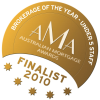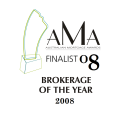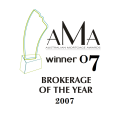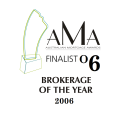Home Loans
For most people, an attractive interest rate is one of the most important features. For others it is having the flexibility of a redraw facility or the ability to alter their repayments.
At Touch of Finance we offer personalized one to one service in helping you find the right loan. We will explain in detail the different products and features on offer and help find the right loan for your needs.
Home Loans Directory:
- Standard Variable
- Basic Variable
- Introductory (Honeymoon)
- Fixed Rate Loan
- Bridging Loan
- Credit-Impaired Loans
- Low Document Loans
This is the most popular home loan in Australia. The interest rate on these loans vary at anytime depending on the market forces. The features of a Standard Variable rate loan vary dependant on the individual lender but these loans generally offer an offset facility, redraw facility, no limits on additional repayments and in most cases no early pay-out penalties. A standard variable loan can usually be combined with other types of loans and are ideal for the borrower wishing to pay their home off sooner rather than later.
Basic variable rate loans are sometimes referred to as the 'no frills' alternative to the standard variable rate loans. The interest rate is lower then a standard variable loan, making them attractive to the budget conscious borrower wanting a lower variable rate but with fewer features.
An Introductory variable rate loan generally offer's a guaranteed low rate for an initial period of time (usually 12 months) after which most interest rates will revert to the Standard Variable Rate. An Introductory Loan is attractive for the borrower wishing for to take advantage of the honeymoon period before taking up the features and advantages of a Standard Variable Rate Loan.
Fixed rate loans are funds lent over a set term at a set interest rate. This gives the borrower the certainty of knowing exactly what their monthly repayments will be should their circumstances change. Some lenders may impose early repayment penalties if you make a lump sum reduction to your loan or you pay the loan out in full. However a fixed rate loan is ideal in a rising interest rate market as this guarantees you of your interest rate and repayments for a set time.
A Bridging Loan is available to borrowers who wish to purchase a new home now and sell your current home later. These loans are especially helpful to 'bridge' the gap between the sale of one property and the purchase of another. The interest rate on a Bridging Home Loan is usually the same as a Standard Variable Rate Loan.
A Bridging Loan ensures that the borrower will not miss out on a desired property because they haven't sold the current home. Line of Credit A Line of Credit provides a borrower with access to the equity in their home or investment properties whenever they wish for any worthwhile purpose. It is similar to an overdraft facility in that funds can be withdrawn up to the original loan approved amount at anytime.
The interest rate on a Line of Credit facility is usually a variable rate that fluctuates with the market. A borrower can generally access their Line of Credit via a Cheque Book, Credit Card, ATM, Phone and Internet. A Line of Credit provides a borrower with easy access to funds ensuring peace of mind in times of need.
At some point in the past, a borrower may have experienced difficulty in meeting their monthly commitments due to lack of work, suffered unexpected business losses or had a difference of opinion with a former credit provider. Unfortunately, in these cases the former credit provider may have lodged a payment default (or black mark) on their credit report with a credit recording agency. When applying for finance, a default lodged on a credit report may cause some frustration as a lender may not take an understanding view of the borrowers explanation surrounding the default.
Credit-Impaired Loans are designed especially to assist a borrower in these circumstances. Usually these loans incur an extra interest rate margin and possibly extra fees and charges.
A Low Documentation (or No documentation) loans are designed for the self-employed or small company borrower whose financial statements may not be available for many different reasons eg Accountant hasn't completed their bookwork. The borrower must have a sizeable deposit or equity in existing real estate property.
These loans are usually a variable rate and offer most of the features and benefits attached to the lender's standard variable rate loan product. A Low document loan can be just as competitive as mainstream lenders, however they provide less hassle as the borrower doesn't have to provide the usual lender income documentation.
Want to know more? Contact us by clicking here.















